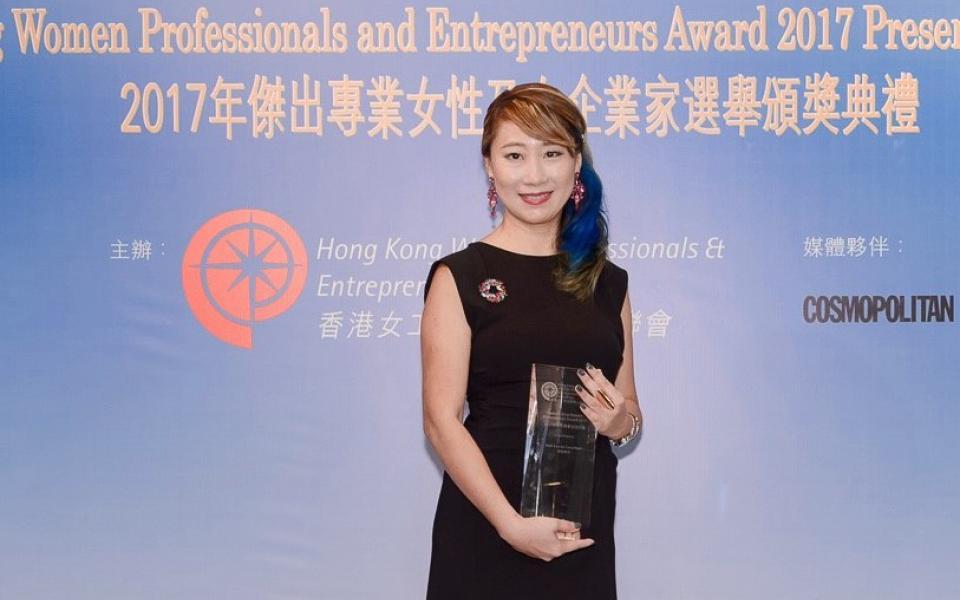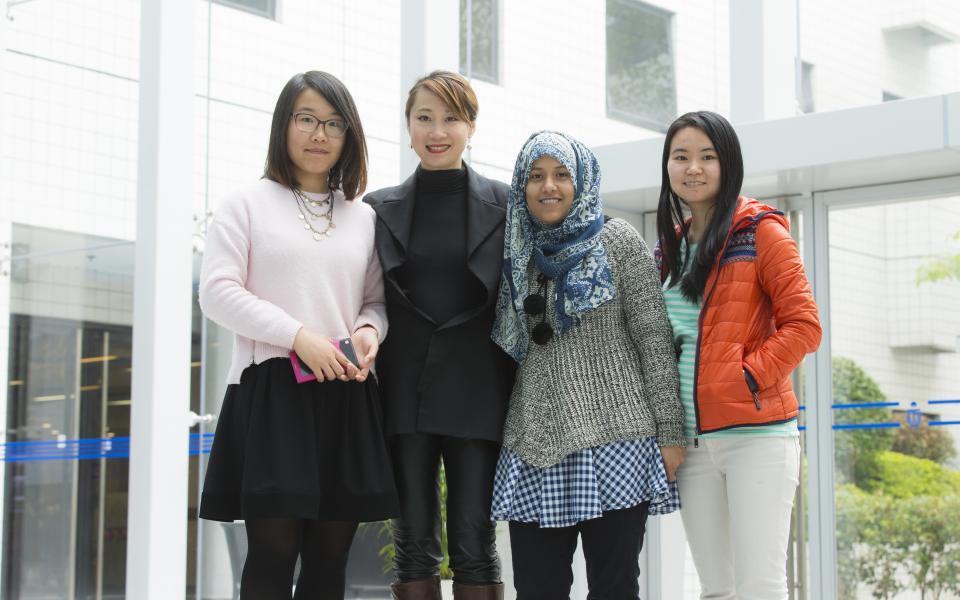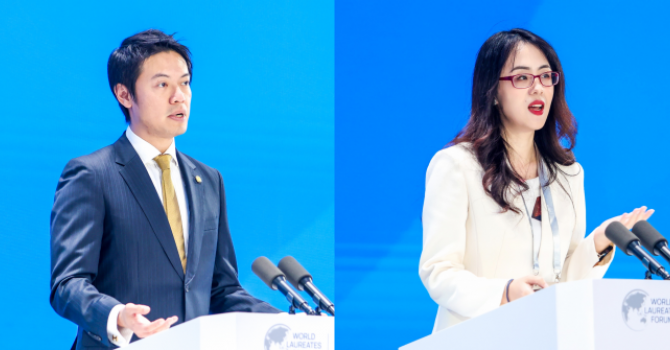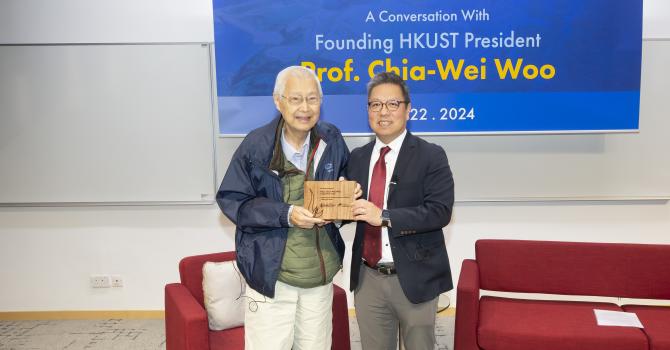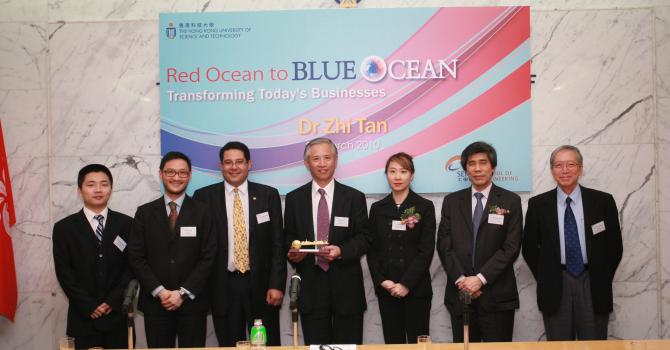Prof. Pascale Fung: Woman Engineer Defies All Odds
Known for her outstanding achievements in artificial intelligence, Professor Pascale FUNG’s contributions go beyond her research breakthroughs and the building of intelligent systems. Having been teaching at HKUST for 24 years, Prof. Fung is also a female role model. This article is an exchange of views between a female engineering student and an AI expert about their upbringing as well as female perspective in engineering and life pursuit.
As an engineering undergraduate myself, I was lucky enough to speak to Prof. Fung, which I never had a chance before. I was a little nervous while waiting for her for the interview. But when Prof. Fung walked into the room, I was amazed by her strong sense of enthusiasm and more importantly, confidence. I instantly knew that I was going to learn so much from her.
“I would prove you wrong”
Growing up, Prof. Fung had a wide range of interests from arts, business to science, among which she was particularly fascinated by robots and science fiction. She decided to be an engineer when in high school. Her parents were very supportive but not the people around her.
“My uncle told my mom that I was smart and number one in many things but I could never beat the boys in mathematics,” says Prof. Fung. “I thought I was going to prove him wrong, and since then I never got a B in mathematics in my life.”
She was even discouraged by a school counselor who advised her to be a medical doctor instead of an engineer because being a doctor is an “expected” profession for girls interested in science.
“I said I wanted to be an engineer, not a medical doctor. I’m not into biology and I’m afraid of blood,” she says with a laugh. “I was told engineering was really hard especially for girls and then I said that’s what I wanted to do, so I did it!”
Everyone needs a mentor to foster one’s talent. Prof. Fung was lucky to have a lab technician who opened her a door to engineering, much like Queen’s Gambit, the hit TV series about a talented woman chess player who was taught chess by a school janitor.
“I went to an all-girls high school and there was no engineering club for us,” recalls Prof. Fung. “This lab technical taught a few girls and me about engineering and computer programming, just like an after-school class. I even started an electronics club though I was the only member.”
The “proving people wrong” spirit that Prof. Fung demonstrates is empowering to me. My father, an engineer himself, has been telling me that females do not have any advantages in the industry. When I told him I wanted to pursue engineering, he strongly persuaded me to go for architecture instead. Working in the field for so many years, my father was not trying to discourage me, but to protect me. That was when I knew being a female engineer would never be easy. However, seeing women succeed in the STEM field has motivated me, and having role models out there proved that I am on the right track.
“We need more female role models”
Being in the engineering profession for many years, Prof. Fung has seen progress in gender equality in STEM-related industries. When I mentioned the fact that it is still improving at a slow pace, and to my surprise, Prof. Fung said it was rather expected.
“The conversation of gender equality in workplace has only started a while ago, so I do not anticipate a significant change to be seen until at least 5 to 10 years later,” says Prof. Fung with a sense of cautious optimism, and she looks forward to more encouragement towards females.
“There is still a small minority of women engineers in leadership positions,” she says. “If we don’t have women in senior positions, there won’t be enough role models. Then how can we encourage young women, like yourself to pursue a career in STEM?”
As a mother herself, Prof. Fung thinks the burden of being a homemaker is somehow one of the biggest reasons why ambitious women are reluctant to take up leadership roles.
“Professional women are still the ones who take care of the family, children and elderly at home, which is a significant burden for them,” explains Prof. Fung.
“Until men start sharing family responsibilities, there will always be a challenge for women.”
I had an instant realization that it had often been women who have to make this difficult choice: family or career. Maybe it is time for us to create a society where women are encouraged to do what they want with their jobs and lives.
Prof. Fung also points out a light in women in engineering. All the expected responsibilities allow females, in general, to be relatively more of a multitasker.
“Women tend to be more empathetic and understanding of others,” she says this female perspective tends to make them better team players in the workplace. “There is a general trend where female engineers participate more in human-related engineering fields, such as social robotics and education.”
This empathy perspective got a more personal manifestation when Prof. Fung was diagnosed with cancer in 2015. Working on her own treatment plan together with her doctor, she was reading the medical papers where she learned how machine learning could be used to study illnesses and diseases.
“Some people’s research saved my life,” she says. “I studied my treatment as a project and started to think what my research can help the world.”
Prof. Fung’s research team has recently launched “Meet Nora!”, a self-help platform for anyone undergoing quarantine because of Covid-19 to keep themselves emotionally healthy.
“You’ve got to believe in yourself”
“I love what I do. It gives me meaning,” that is how Prof. Fung concluded her career and life pursuit so far.
When I think about it, Prof. Fung’s attitude of proving people wrong helped her walk this far in her journey in engineering. It is almost as if I can find the same quality in any other women out there, myself included, aspiring to win life.
“To be successful is to ignore people who told you that you could not,” says Prof. Fung with pride and firmness. “That is what I always tell my daughter and students. The more you want to do, the more people want to doubt you. But it’s really important to believe you can. We need to encourage them and make them believe that they can.”
At the end of the day, yes, we do face adversities, challenges, and discrimination. Yet, if we pick ourselves up and carry on, we can prove, not just to others, but to ourselves that we are empowered and strong.
Article contributed by Dorothy CHIU Yin-Ching, School of Engineering
